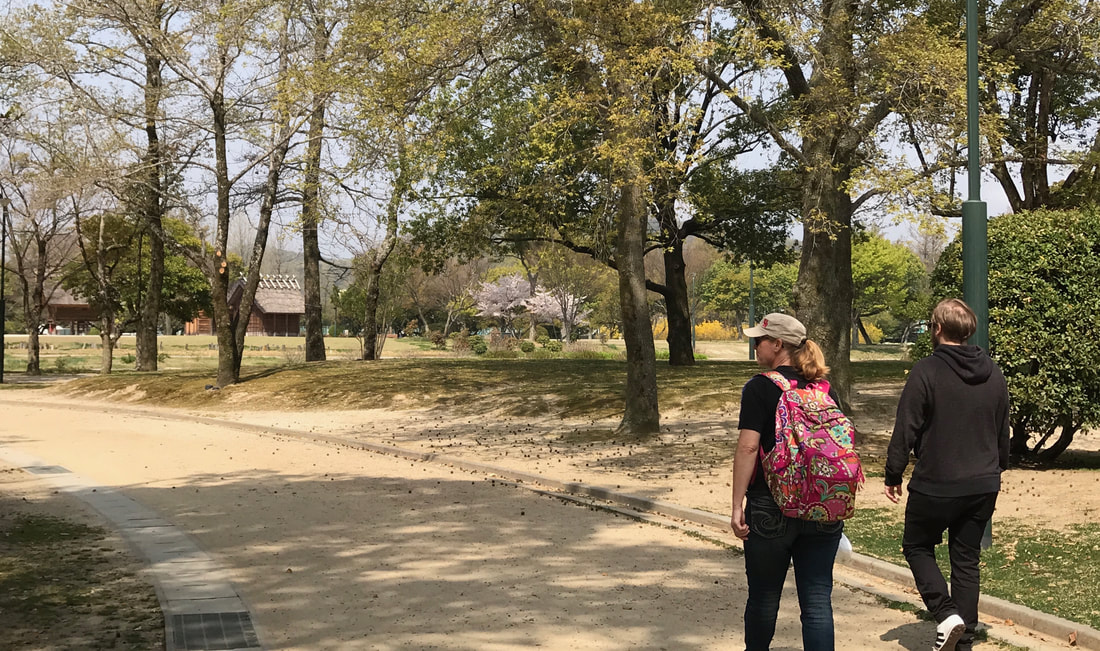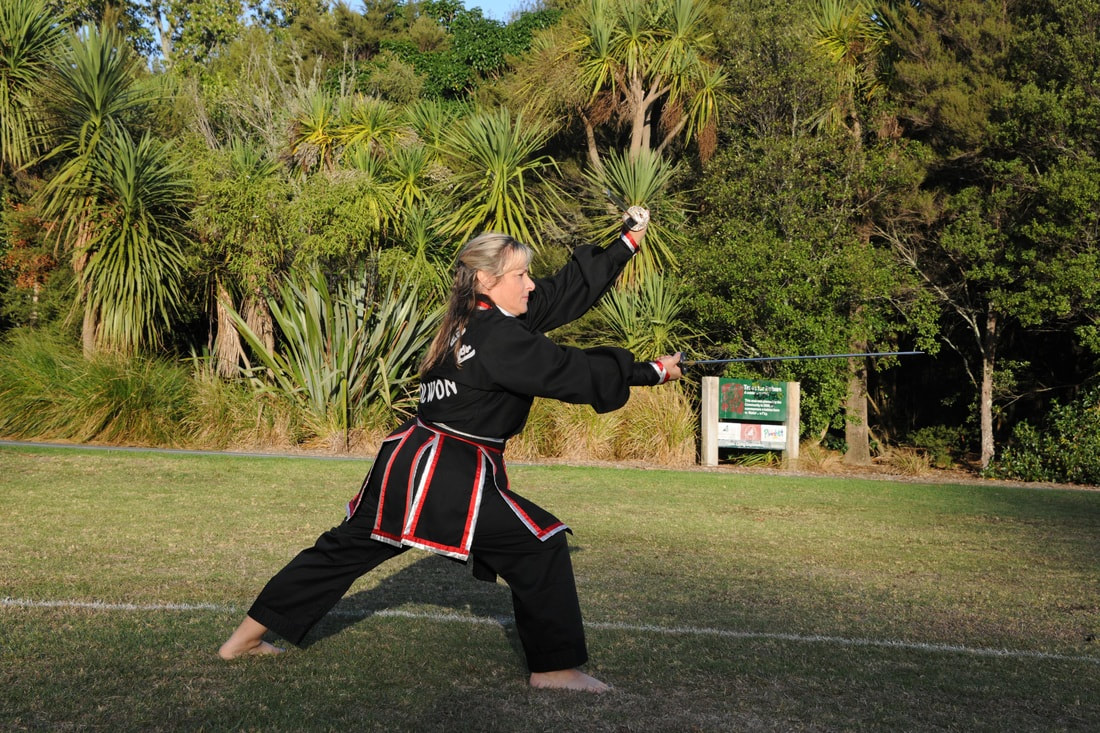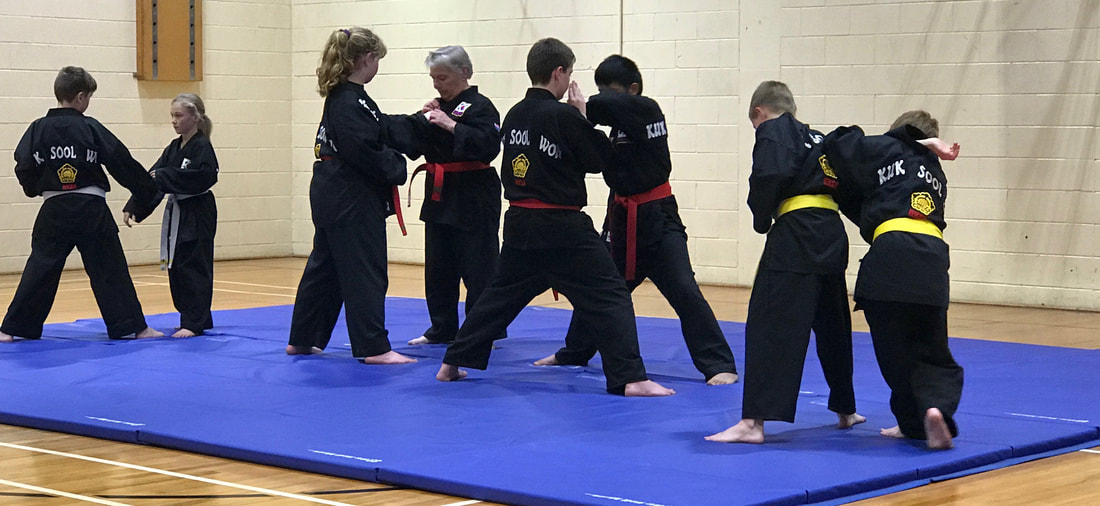|
In my last blog I looked at the link between martial arts and mindfulness and how the mindful practice of martial arts has made my life richer and more enjoyable. Practising mindfulness enriches the quality of our lives by reducing stress and anxiety, as well as enabling us to enjoy each present moment. It also serves another very practical and important function. Living more mindfully enhances our personal safety.
Mindfulness is a state of being, where we are completely present and living with full awareness of each moment. By living fully in the present moment, we can give our full attention and focus to our present task or activity, whether it is sitting reading a book, taking a walk, or practising martial arts. When it comes to personal safety, mindfulness enables us to become much more aware of our surroundings. How many times have we walked along a street caught up in our thoughts or looking at our phone, unaware of what is happening around us? Or driven a familiar route on autopilot while we reflect on our day or some problem that is troubling us? Our lack of awareness can expose us to risks, which could be avoided if we practised mindfulness in our daily lives and activities. Here are some mindful ways we can improve our personal safety.
JKN Jane Hurst First degree black belt and school owner Kuk Sool Won™ of Onewhero Copyright © 2018. Kuk Sool Won™ of Onewhero. All Rights Reserved.
0 Comments
When I am practising and teaching my martial art of Kuk Sool Won™, nothing else exists. I am not thinking about what has happened in my day or what I will be doing later. I am freed from any worries that may be causing me stress. My mind is focused on one thing; what I am doing in that moment. For me, martial arts is a mindful practice.
Most people will have heard of mindfulness. It is the big thing at the moment with loads of books published on the subject and a huge array of mindfulness courses available. It has the potential to truly enhance a person’s quality of life if it is understood and practiced correctly. What most people may not realise though, is that a traditional martial art such as Kuk Sool Won™ incorporates and teaches the concepts and benefits of mindfulness. It is a mindful practice. To understand this relationship, we need to understand what mindfulness is and how it is relevant to the practice of martial arts. Mindfulness is derived from eastern Buddhist practices where monks would meditate for hours to still and empty their mind. They saw this as a path to enlightenment, something which takes a lifetime of practice to achieve. Given its Buddhist origins, most people associate mindfulness with the concept of being completely still and of emptying our minds. However, for most of us, this is not realistic. Our lives are too busy, are minds are too filled with thoughts that we struggle to control, and we have little free time to sit and do nothing. Mindfulness as it has been related to westernised culture, is based on the principle of focus rather than on emptying of our minds and as such, it doesn’t require us to meditate or to be completely still for extended periods of time. Instead, mindfulness is a state of being, where we are completely present and living with full awareness of each moment. This frees us from worry about the future or thinking about a multitude of things at once. By living fully in the present moment, we can give our full attention and focus to our present task or activity, whether it is sitting reading a book, taking a walk, or practising martial arts. Being fully present and mindful not only requires us to focus solely on the task at hand, but also to do it in a non-judgmental way. This involves gently letting go of the negative self-talk and the judgments we make about ourselves, such as “I’m not doing this well enough” or “I will never be good enough”. When I first started practising martial arts, I would become distracted by my thoughts and self-judgments. I would reflect on my day during the warm up and think about what I would be having for dinner or doing tomorrow. I would also have a frequent internal dialogue on all of the things I was doing wrong or not good at. I would criticise myself for not being good at kicks, or not remembering my forms, or not getting my techniques right. As I progressed in my training, this began to change and I am now much more mindful in my training and teaching. For example, instead of thinking about my day, I now focus on my body and how it feels during the warm up. This is the time when I connect with and prepare for my training and the class I am teaching. When I am training, I do it with awareness and focus on what I am doing. While I am aware of how well I am performing it, I rarely criticise myself now. Instead, my awareness provides me with important information which I can use to help me improve. I am also not thinking about what I will be doing next. Instead, I am focused on that present moment. There is a connection between my body and mind, in each moment of my training, which makes it a much more enjoyable experience. It reduces my stress rather than adding to it. This flows through to my teaching, enabling me to give my students my full attention and the best teaching experience I can. Martial arts training has taught me how to be fully in the present moment, in a non-judgmental way. While I am not able to replicate this at all times, in all aspects of my life, it does have a flow on effect by encouraging me to be more present and aware, as well as less judgmental throughout my day. My life is richer and more enjoyable as a result. JKN Jane Hurst First degree black belt and school owner Kuk Sool Won™ of Onewhero Copyright © 2018. Kuk Sool Won™ of Onewhero. All Rights Reserved.
Some martial artists believe that in order to really learn to defend yourself, you have to practice full contact fighting. They maintain that it’s an essential part of the physical conditioning needed for self-defense and that by being hit, you learn what it feels like and will be better able to cope with it in a real life fight. I disagree.
There was a time in my past when I was hit hard, on more than one occasion. Fortunately I was never hit in the head so was never knocked unconscious. But I have been hit for real and I know what it feels like. I don’t need to practice full contact fighting to know that at best, being hit hurts like heck and will affect my ability to defend myself. At worst, it may knock me out or even kill me if I am really unlucky. Not long ago, a New Zealand security guard was punched in the head and killed. This shows how deadly just one punch can be. I also know that the last place I want to be is in a stand up fight with anyone, particularly if that person is bigger and stronger than me. As a relatively small woman, that makes up a lot of the population! I might have a number of physical self-defense skills in my toolkit, but all it can take is one good punch to the head and its curtains for me. The true art of self-defense is not learning how to fight. No matter how skilled you are as a martial artist, a real life fight is always going to be unpredictable and there is a real possibility that you will get seriously hurt. Self-defense is about never needing to fight or only using your self-defense skills as an absolute last resort. Self-defense is about being well prepared. What we do in our everyday lives has a major influence on whether we will ever need to physically defend ourselves. True self-defense starts with:
Self-defense is also about physical conditioning. However, we don’t need to practice full contact fighting to condition our bodies. Our martial art of Kuk Sool Won™ physically conditions us in many ways; through the practice of forms, kicks, falling techniques, weapons training, and self-defense techniques. No or minimal contact sparring also conditions the body and improves our speed and reflexes, without the need to be physically hurt. These are all an important part of developing our body and mind to react in the best possible way if we are ever faced with a physical confrontation There may be times when we have no choice but to physically defend ourselves. I hope that situation never arises but if it does, my focus will be on using my martial arts training to get away from the situation as quickly as possible and hopefully, physically and psychologically unharmed. However, using my martial arts skills is the last resort in my self-defense toolkit. I hope I never have to use them. JKN Jane Hurst First degree black belt and school owner Kuk Sool Won™ of Onewhero Copyright © 2018. Kuk Sool Won™ of Onewhero. All Rights Reserved. |
Caroline and Jane Hurst
Caroline is a 5th degree black belt and Jane is a 2nd degree black belt in the traditional Korean martial art of Kuk Sool Won™ . They run 2 Kuk Sool Won™ martial arts schools in New Zealand. Archives
March 2019
Categories
All
|




